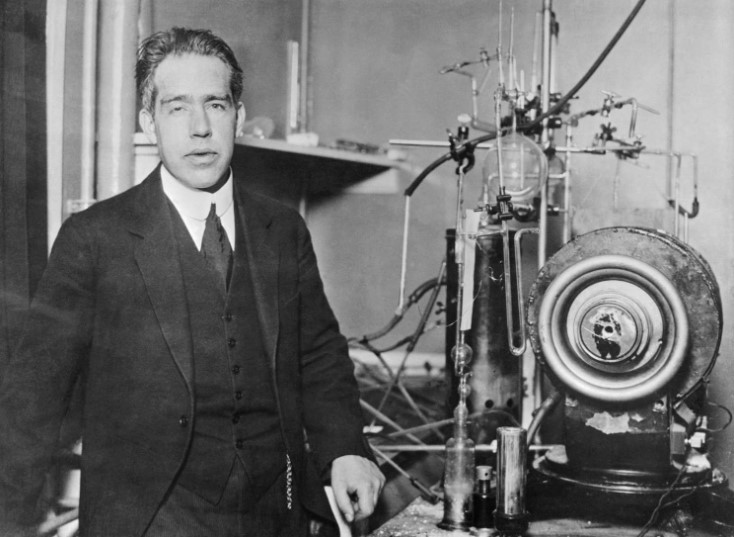
André-Marie Ampère: The Pioneer of Electrodynamics
Early Life and Education
André-Marie Ampère was born on January 20, 1775, in Lyon, France. Ampère’s early education was predominantly influenced by his father, Jean-Jacques Ampère, who was a well-educated and enlightened individual. His father instilled in him a deep love for learning and curiosity about the natural world. Despite the lack of formal education in his early years, Ampère was a voracious reader, delving into subjects such as mathematics, chemistry, and Latin. His self-education laid a solid foundation for his future scientific endeavors.
Career and Contributions to Science
Mathematical Foundations
Ampère’s early work was heavily influenced by the mathematical principles established by pioneers like Isaac Newton and Leonhard Euler. He made significant contributions to the field of mathematical analysis, particularly in the theory of partial differential equations. His work in mathematics not only provided the tools needed for his later discoveries but also established him as a formidable intellectual force in the scientific community.
Electrodynamics: A New Branch of Physics
The term “electrodynamics” was coined by Ampère to describe the study of the interaction between electric currents. His groundbreaking work in this field began in earnest after the discovery of electromagnetism by Hans Christian Ørsted in 1820. Ørsted’s experiments demonstrated that an electric current could produce a magnetic field, a revelation that sparked Ampère’s curiosity and led him to conduct his own experiments.
Ampère’s investigations culminated in the formulation of Ampère’s Law, which mathematically describes the magnetic field generated by an electric current. This law is one of the fundamental equations in classical electromagnetism and is crucial for understanding the behavior of electrical circuits and magnetic fields. Ampère’s Law states that for any closed loop, the integral of the magnetic field along the path is proportional to the electric current passing through the loop. This principle laid the groundwork for the later development of Maxwell’s equations, which describe all classical electromagnetic phenomena.
Invention of the Solenoid
One of Ampère’s most practical contributions was the invention of the solenoid, a type of electromagnet. A solenoid consists of a coil of wire through which an electric current passes, creating a uniform magnetic field within the coil. This invention has profound applications in various modern technologies, including electric motors, inductors, and transformers.
Ampère’s Theory of Magnetism
Ampère proposed a revolutionary theory that magnetism was the result of tiny circular currents at the molecular level. This hypothesis, known as Ampère’s molecular currents, suggested that magnetized materials contained these microscopic currents, which aligned to produce a macroscopic magnetic field. Although the atomic theory of matter was not fully developed at the time, Ampère’s insights were remarkably prescient and paved the way for later advancements in the understanding of atomic and molecular physics.
Personal Life and Character
Ampère was known for his humble and modest demeanor, often downplaying his achievements and attributing his success to the works of his predecessors and contemporaries. Despite his significant contributions to science, Ampère faced personal tragedies, including the loss of his father during the French Revolution and the death of his first wife, Julie Carron, which deeply affected him.
Ampère’s personal letters and writings reveal a man of deep intellect and introspection, with a profound passion for both science and philosophy. He was also a devoted father to his son, Jean-Jacques Ampère, who later became a renowned historian and philologist.
Legacy and Honors
Ampère’s Influence on Future Scientists
André-Marie Ampère’s work has had a lasting impact on the field of physics and electrical engineering. His pioneering research laid the foundation for many modern technologies and theoretical advancements. Notably, James Clerk Maxwell, who formulated the famous Maxwell’s equations, was significantly influenced by Ampère’s discoveries. Maxwell’s work unified the concepts of electricity and magnetism into a single theoretical framework, further solidifying the importance of Ampère’s contributions.
Honors and Recognitions
Ampère’s legacy is commemorated in various ways, most notably through the unit of electric current, the ampere (A), named in his honor. This unit is fundamental in the International System of Units (SI) and is used globally to quantify the flow of electric current.
In addition to this, Ampère was elected to several prestigious scientific societies during his lifetime, including the French Academy of Sciences. His contributions to science have been recognized worldwide, and his name remains synonymous with electrical science and engineering.
Ampère’s Work in Academia
Ampère held several academic positions throughout his career, including a professorship at the Collège de France and a seat at the Polytechnic School. His lectures and publications were highly influential, disseminating his ideas and inspiring the next generation of scientists and engineers.
Conclusion
André-Marie Ampère’s contributions to science are vast and enduring. From his early work in mathematics to his groundbreaking discoveries in electrodynamics, Ampère’s legacy continues to influence modern science and technology. His theories and inventions have paved the way for countless advancements, making him a true pioneer in his field.
His modesty, intellectual rigor, and dedication to scientific inquiry serve as an inspiration to scientists and engineers around the world. As we continue to explore the principles of electricity and magnetism, we build upon the foundation that Ampère so meticulously laid.


